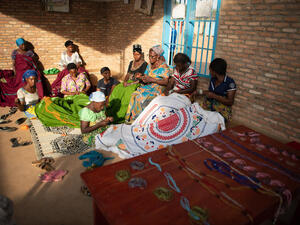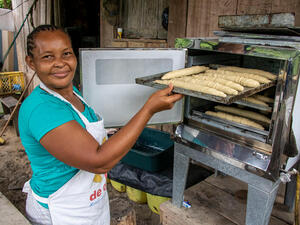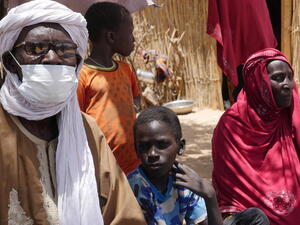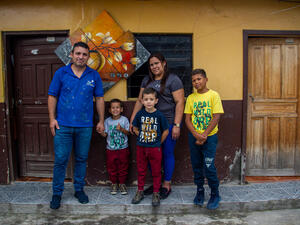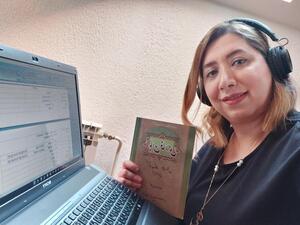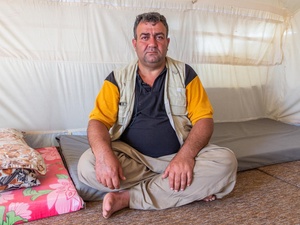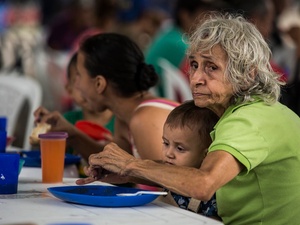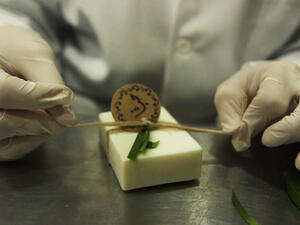CAR refugees have little in their pockets, but bring skills and enterprise
CAR refugees have little in their pockets, but bring skills and enterprise
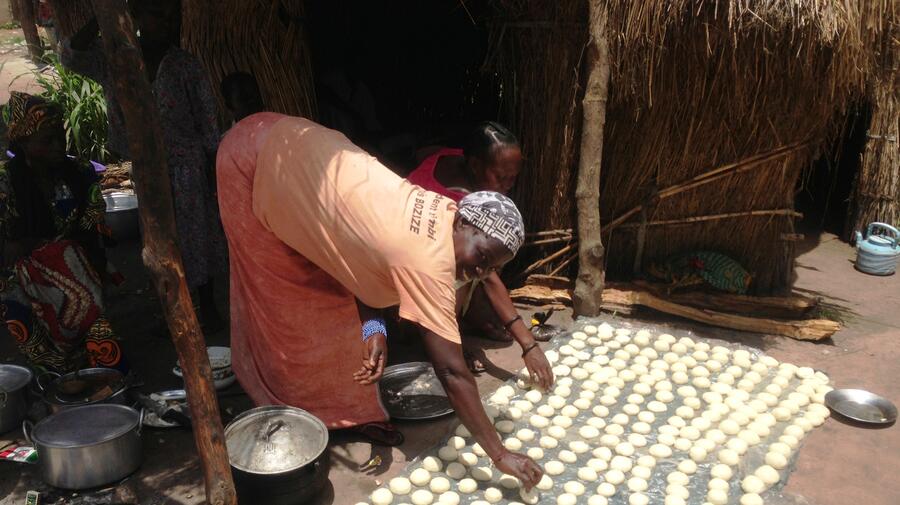
Asia has used her cooking skills to establish a small business that provides enough income to support her family and employ a friend. UNHCR is working to make CAR refugees arriving in Chad self-sufficient.
GORE, Chad, 11 April (UNHCR) - Asia* and her family had no time to pack their belongings. "I had to spend most of my cash, 10,000 FCFA (about USD 20), to get to Chad. We had nothing when we arrived and I had to feed my children," she says.
Since early 2013, an estimated 23,000 refugees from the Central African Republic (CAR) have fled violence and human rights abuses and crossed the border into southern Chad.
Arriving at the border with little in hand and traumatized by the violence they fled, the majority of refugees from CAR opt for relocation, facilitated by UNHCR, to a refugee camp where they receive food, and assistance with basic household items, and will have access to potable water, shelter, education and health.
Asia, 48, is from Paoua in CAR and arrived in Chad in April 2013. "When we fled, I had no idea where I was going" she says. "I just followed my relatives into the bush."
Asia and her four children made it to Chad but her husband, a truck driver, was killed by militants on the way. "The rebels just came and destroyed. They stole, they killed and they burned. Nobody knew what they wanted."
With little left and needing to care for her children, Asia invested the last of her money on ingredients for cakes. In the main market of Dosseye camp, Asia, wearing a colourful skirt and a bandana around her head, carefully displays her homemade galettes (sweets), perfectly golden brown, in her newly-constructed stall.
"I made a little profit from the first batch of galettes and borrowed a little more money," says Asia with a smile, "so I could also make bouillie (a local porridge made of peanuts) and boule with sauce." It proved very popular.
Today, Asia has not only paid back her debt, she makes a profit to support her family, sending her children to school and buying additional items they need.
The UN refugee agency registered some 15,000 refugees from CAR arriving in Chad in 2013 and another 8,000 in the first three months of 2014, bringing the total now in Chad to over 90,000. Women and children are the large majority, many traumatized by the violence they have escaped.
The UNHCR in Chad has re-oriented its strategy to focus on promoting the self-reliance and livelihoods of the refugees. Income-generating activities, micro-credit, skills training and capacity building in management and maintenance services are among the activities.
Trade with local communities not only helps refugees to gain economic independence, it helps establish trust and contribute to peaceful coexistence between disparate groups such as herders and farmers.
UNHCR hopes to use the experience and expertise of refugees like Asia to help others re-establish their lives, gain socio-economic stability and return to normality. This will also prepare refugees for the time when they return to their homes.
"What I do is really appreciated by other refugees," says Asia. She has hired her neighbour, who is from her original village in Paoua, to help and pays her a percentage of the daily sales.
With her small business, Asia can pay for rent, the education of her children, and hopes to make enough money to enlarge her business. She may even open a restaurant like the one she left behind in CAR, she says with a big smile.
"My advice to other refugees," Asia says, "is not to sit around with their arms folded, but to pull themselves together and do something to make a better life for themselves."
*Names have been changed to protect the individuals.
By M. Farman-Farmaian in Dosseye Camp, Chad


